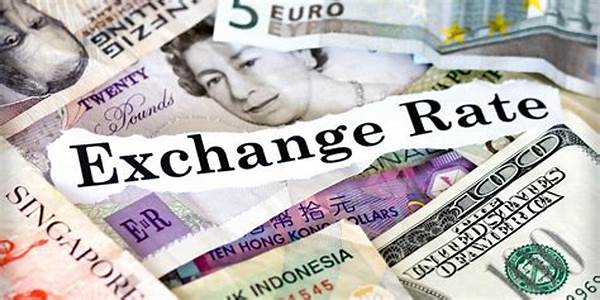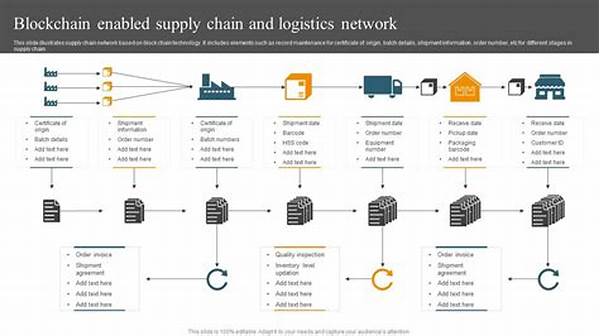Imagine this: You’re sitting in your favorite coffee shop, sipping on an espresso, while checking your booming cryptocurrency portfolio. You’ve got a handle on trading, and the numbers are impressive. But then you get an email. Turns out, there’s a legal hiccup because you’re trading on a cross-border exchange. Uh-oh, that sounds troublesome. Welcome to the rollercoaster of legal issues in cross-border cryptocurrency exchanges.
Read Now : Ensuring Database Encryption Standards
The Wild West of Crypto: Legal Complexities
Entering the world of cross-border cryptocurrency exchanges is like stepping into the Wild West. Everyone’s got a different way of doing things, and rules change with every border crossed. Let’s break it down: imagine trying to trade in crypto-land without a map. You’ve got regulatory bodies tossing rules at you like confetti, and before you know it, you’re knee-deep in compliance chaos.
One minute, you’re a player in a thriving digital marketplace. The next, bam, the legal issues in cross-border cryptocurrency exchanges hit you like a plot twist in a Netflix series. Countries have their own sets of rules, primarily to deal with money laundering and tax evasion. Staying compliant feels like trying to finish that impossible level on your favorite video game—frustrating, right?
But wait, there’s more—your little crypto party can be crashed by something called “regulatory arbitrage.” It’s when traders jump from one jurisdiction to another to find the friendliest regulations. It sounds fun until you realize it can lead to, yes, more legal issues in cross-border cryptocurrency exchanges. Like playing musical chairs, the music is playing, but legally, there’s nowhere to sit.
Untangling the Common Dilemmas
1. Jurisdictional Headaches: Imagine trading from the comfort of your hoodie but realizing every country wants a piece of you. Legal issues in cross-border cryptocurrency exchanges often arise when nations clash over jurisdiction.
2. KYC/AML Nightmares: Heard of Know Your Customer (KYC) and Anti-Money Laundering (AML)? If not, brace yourself. These processes are mandatory, continuously evolving, and catching traders off guard, thus creating more legal issues.
3. Regulatory Arbitrage: Hop from one country to another seeking friendly regulations. Sounds cool, right? Plot twist: It’s a legal maze with more twists than a thriller movie, adding layers to legal issues.
4. Taxation Woes: Every government wants its cut. Not understanding tax responsibilities can lead to serious legal issues in cross-border cryptocurrency exchanges. Avoid the surprise tax bill horror story!
5. Security Breach Drama: Security in exchanges is like a game of cat and mouse. But when breaches occur, legal issues in cross-border cryptocurrency exchanges become a nightmare of finger-pointing and blame games.
Navigating the Regulatory Jungle
Ready to venture deeper? Navigating legal issues in cross-border cryptocurrency exchanges feels like being in a dense jungle with nothing but a compass and a flashlight. To survive, understanding the lay of the land is crucial. First, check out what regulations apply to the exchanges you’re dealing with. Knowledge is power, after all.
Read Now : Cybersecurity Measures In Voter Authentication
The fun doesn’t stop there. Ever considered the cultural factor? Different countries respond to crypto with varying degrees of enthusiasm or suspicion. It’s crucial to keep this in mind so you can predict how laws may change faster than a TikTok trend. Global cooperation sounds epic but comes with many hiccups. Even when you think you’ve got it down, you realize every country has a different rulebook, adding layers of complexity to the legal issues in cross-border cryptocurrency exchanges.
Decoding the Impact of Legislation
Regulations are like traffic lights—necessary, but sometimes a little annoying. Still, they help avoid the chaos that unchecked crypto trading can cause. Legal issues in cross-border cryptocurrency exchanges often stem from rapidly changing laws that keep exchanges on their toes. The attempt to keep a balance between innovation and protection is like a seesaw, with regulators and exchanges constantly moving up and down.
But why care? Because not understanding these rules is akin to entering a dodgeball game blindfolded. You won’t just get thrown out; you might get hurt—financially. Staying informed means you’re one step closer to ensuring smooth operations while dodging those pesky legal issues in cross-border cryptocurrency exchanges.
The Double-Edged Sword of Innovation
Cryptocurrency is the epitome of innovation, but it’s a double-edged sword. On one hand, the tech is revolutionary. On the other, with rapid advancements come complex legal issues in cross-border cryptocurrency exchanges. High risk meets high reward meets high regulation, making it a thrilling yet bumpy ride.
Innovation fosters new markets and economies but without careful monitoring can lead to unregulated chaos. This paradox is central to legal issues in cross-border cryptocurrency exchanges. So, how do you stay ahead? Stay educated, adapt quickly, and always, always have a plan B.
The Future Landscape
The crystal ball is hazy, but some trends are apparent. Global harmonization of regulations could ease the ride but might take years to materialize. The future might also see more sophisticated technologies to aid in compliance, lessening the headache caused by legal issues in cross-border cryptocurrency exchanges.
In this story, the hero isn’t just the trader but also the tech that could simplify compliance. Until then, here’s to battling through the jungle of legal issues, armed with knowledge and a healthy dose of ambition. Welcome to the future of digital finance—may your trades be ever in your favor!



